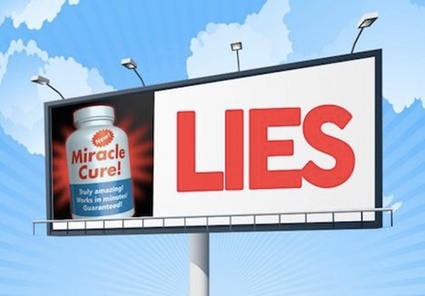On April 13th, nearly 700 companies selling dietary supplements and other health products received letters from the FTC, putting them on notice about claims being adequately substantiated and civil penalties that may occur if they are not.
Did your brand make the list? Did your competitors’ brands make the list? Check here.
If you’d like to read the press release, or see the template for the letters sent, check here and here.
Regardless of who made the list and received the letter, the entire dietary supplement industry should be hearing the message loud and clear. And that message is to make only substantiated claims in your advertising and have adequate substantiation on hand at the time you make claims. If you are unsure how to comply with that, the FTC published a new Health Products Compliance Guidance document this past December. Clearly, they want this Guidance taken seriously.
If you received the letter, you should act fast and get your claims and substantiation lined up, as you will likely be on the front lines for a wave of enforcement likely to be coming. If you did not receive a letter, you might be a bit more under the radar, but we would advise the same thing.
One of the things we tell clients repeatedly is that compliance can be a huge advantage, and it seems like it becomes more and more of an advantage for smart brands year after year. The truth is, most of your competitors have labels with regulatory violations that they do not know about and do not care about, a large number of your competitors have their products made in facilities that claim “cGMP-compliant” and “GMP-Certified” that fall short of the actual regulations in countless ways – usually starting right at the point of receiving raw materials, too many of your competitors are making explicit disease claims that make it difficult and unfair for you to compete, and virtually none of your competitors have adequate substantiation on hand for the claims they make in their advertising.
Yes, we are a very regulated industry, but enforcement is beyond low. And as we’ve seen with our clients time and time again over the years, having labels, cGMPs, and claims buttoned up can be a major advantage in the face of things like Amazon suddenly requiring cGMP documentation, FDA inspections, NAD cracking down on certain areas, California Prop 65 complaints, and mass letters from the FTC. What can turn into a major disruption and distraction for some brands, can also be a minor bump and chance to grab market share for other that are better prepared.
Dietary Supplement Experts has the experience in creating strategy around avoiding regulatory disruptions and distractions. We can help clean up compliance issues long before they ever become issues. You can keep selling while your competitors respond to Warning Letters, meet with lawyers, turn off ad campaigns, conduct recalls, lose customers, and wish they did things correctly earlier on.
Need claims substantiation for your product and advertising?
Not far behind dietary supplement label compliance review, one of our most common services for brands is building claims substantiation files. Here are three great reasons to consider this service for your brand:
1) COMPLIANCE – We’ve honed a robust format over the last 10+ years that has been presented and has held up to virtually all types of substantiation inquiries that our clients have faced. Claims substantiation is not optional – it is a legal requirement for your company.
2) COPY WRITING – One of the biggest and most common mistakes we see is when brands write copy and make claims based on what competitors say. Do not make them fly blind and fall into this lazy trap – and put your company at risk. Our substantiation files include a main document that outlines your ingredients and the numerous claims that can be considered, as well as files containing the studies that would support those claims. We often use these files for creative kick off calls with writers to ensure they know the products that they are selling.
3) PRODUCT DEVELOPMENT – We can create substantiation files for a new product, for and existing product, or for a product needing reformulation. In any case, our main substantiation document can be instrumental in giving your team a quick and easy method for dialing in doses, forms, combinations, delivery methods, etc. to ensure your product has maximum claims, uses the correct forms of ingredients, isn’t over-formulated and unnecessarily increasing product costs, and is safe and effective in your target populations.
If you are interested in claims substantiation files that serve your legal requirements, but also serve your product development, advertising claims and angles, and bottom line, let’s discuss and get you into our schedule. Turnaround times are generally three to four weeks depending on your product. We have generous multiple-product discounting as well. Contact us today at experts@dietarysupplementexperts.com.


